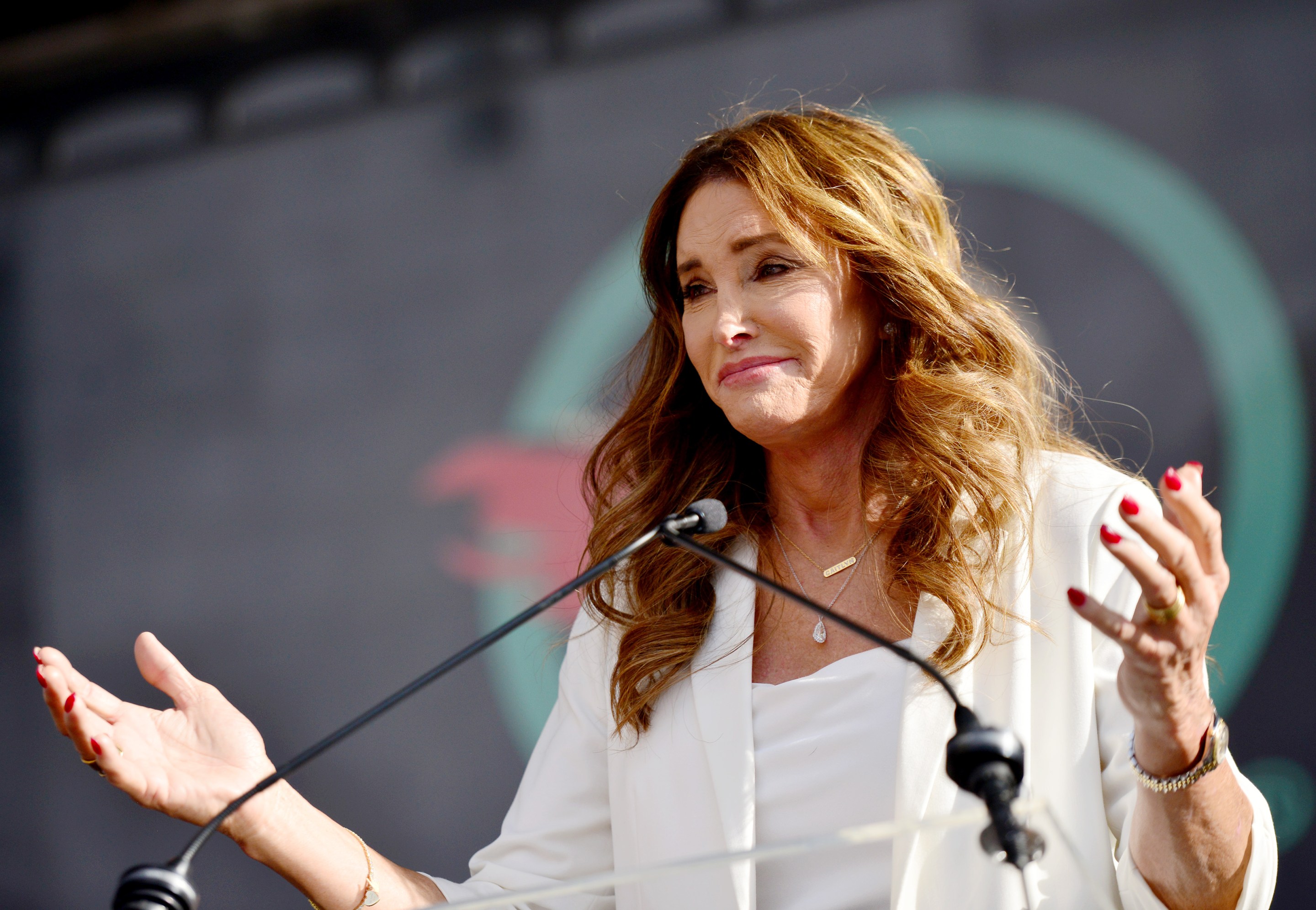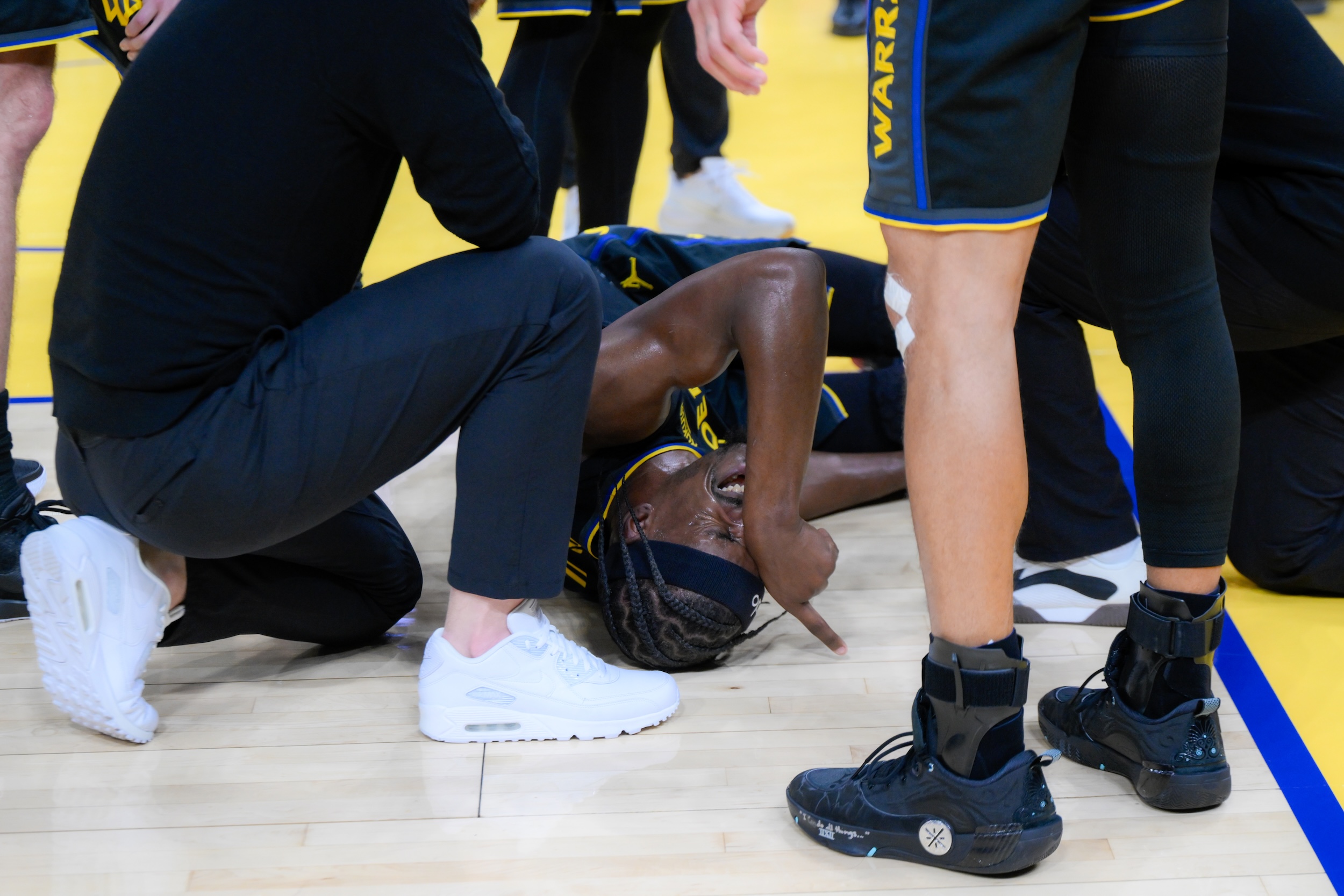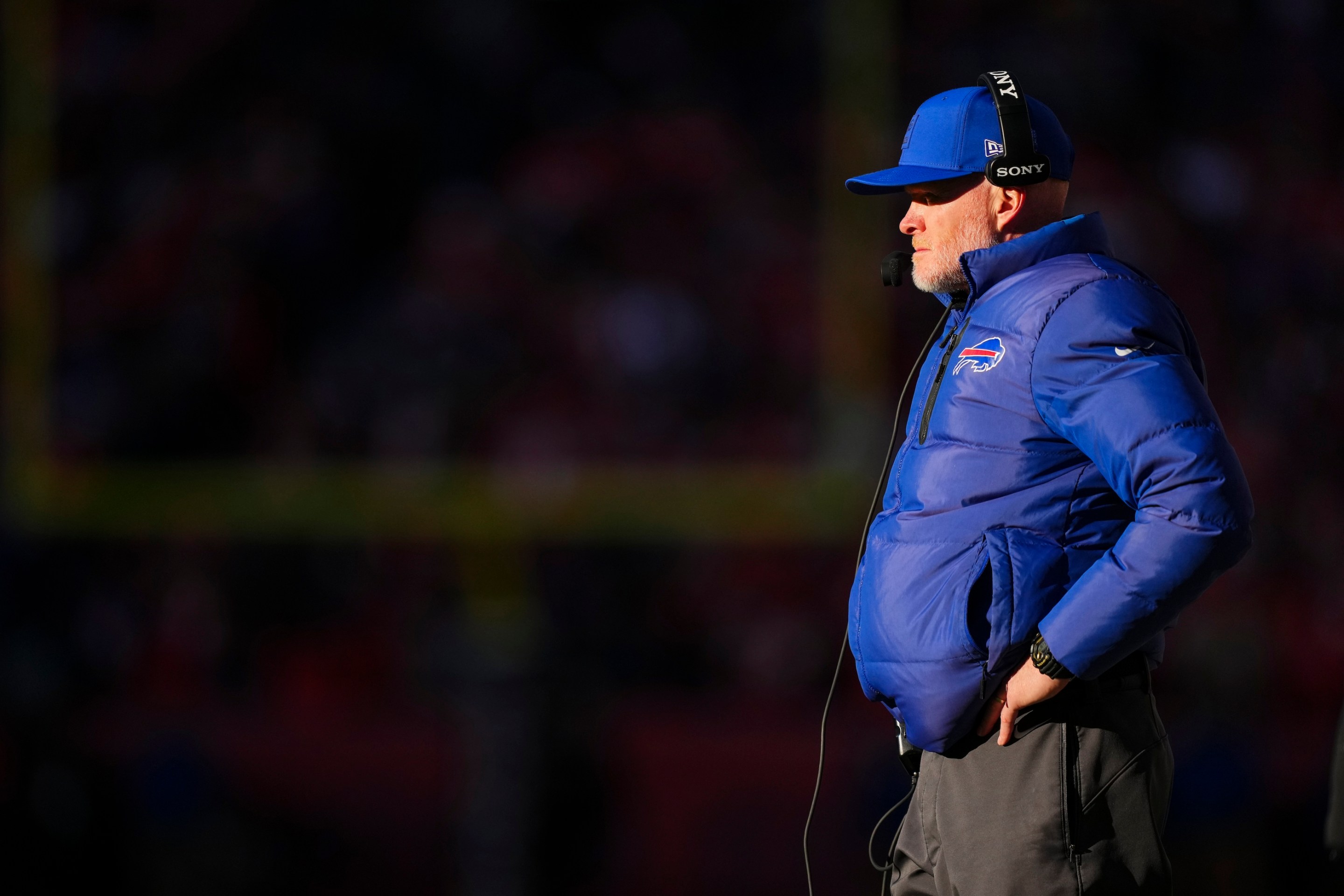Caitlyn Jenner's role in the culture is not an especially demanding one, which generally seems like a good fit. For many years, she played a sort of goofy comic relief role on a cable reality show about rich Los Angeles people going on vacation and doing Facetime calls. Now, she is a sort of utility famous person, the type of celebrity who gets photographed on red carpets and at airports without ever really seeming to be urgently on the way to or from any particular thing. She went on The Masked Singer and covered a Kesha song, badly. As a life, it seems frictionless and airless and dull, an utterly glamorous and toweringly vacant inconsequentiality. But it is not without some hardship. Recently, for instance, while in her own airplane hangar, Jenner witnessed a person packing up his own hangar nearby. "And he says, ‘I’m moving to Sedona, Arizona,'" Jenner told Sean Hannity, in an interview filmed in Jenner's hangar. "'I can’t take it anymore. I can’t walk down the streets and see the homeless.'"
It is because of harrowing real-world experiences like these, and her passion for issues like the complaints of other rich people, that Jenner is running as a Republican for Governor of California. A bunch of other people are vying for that nomination, but Jenner has the distinction of being both the most famous and the most belligerently and lazily anti-trans candidate in the field. Some of this is surely just what it looks like, which is a dim and incurious rich person who watches too much television and lives, dimly and incuriously, in a milieu defined by the vague gripes and abstracted grievances of other dim and incurious rich people. A lot of the rest of her campaign, though, reflects the influence of the Trump veterans that Jenner brought in to join her in her quest to make it so that her friends—or, anyway, people at the private airfield with whom she might have brief cordial conversations—no longer have to walk down the streets and see the homeless.
Delivering this kind of curdled grouchy campaign rhetoric is not a very difficult thing to do, in the abstract, although Jenner lacks both Trump's greasy drive and the advantage conferred by decades of being the living metonym for the idea of Rich Person Who Doesn't Get In Trouble. The lines themselves aren't terribly hard to memorize—Trump took naturally to the challenge of bullying the least powerful people in any situation and otherwise just kind of made whatever reactionary TV news sounds were popular at that moment back at an audience whose minds had been conditioned to receive them as devastating truths—but if you clicked the link above to see Jenner's performance of Kesha's "Tik Tok" you already know that there is a difference between knowing the words and knowing the music. Which is how you wind up with shit like this:
When elected Governor of California, I will CANCEL, cancel culture and wake up the woke.
— Caitlyn Jenner (@Caitlyn_Jenner) May 27, 2021
It is both an uneasy and an incredibly easy time to be an ambitious Republican politician. A generation of hothouse freaks bred for and molded by the conservative political ecosystem are running up against the realization that their base cares nothing about the ludicrously shitty and unpopular policies they've been pushing for generations, and also hates their tricksy and smug debate-club rhetoric, and also hates them, really, mostly for the usual reasons that people dislike Yalies but also because they are boring. But what has replaced all that professional stuff is just trolling and recrimination and bile; there is no real reasoning to it, or with it.
What this base wants to see is itself, reflected in shades of gunmetal and gold, because it does not trust and cannot care about anything but that reflection. This is the language that Jenner is trying to learn to speak, the uncanny patois of sunburned small-business tyrants and seething but secretly bored bosses and aggrieved middle-management. The task before Jenner is to learn the things that the deranged hornball grifters and serial antagonizers of customer service professionals and sloppy hair-trigger affluenza cases hear all day from their televisions, and then learn to say it back to them. Trump was able to do this because, for all his wealth, he was exactly as small of spirit and vacant of principle and jealously selfish as the people that idolized him, and just as voracious a consumer of the same terrible television. For all the other things that might hold Jenner back as a candidate, she does at least seem to have all that going for her.
But she is not there yet. It is something like the point that Canceling The Cancel Culture and Waking Up The Woke don't really mean anything. They're statements made up of recognizable words, but they're more about the sound than the shape. It is a way of saying "I, Caitlyn Jenner, am as upset about whatever these things might mean or be, as you are, in something like the same way," and loading that I Would Also Like To Express My Fondness For That Particular Beer falseness up with a barely implicit promise to hurt their shared enemies. That it comes out so clotted and clanging and strange—that it somehow looks so ugly on the page, what with the random capitalization and that grating extraneous comma between the two consecutive "cancels"—is part of the point, both in how it consciously apes Trump's own grandparental syntax and copy and because of the specific way it is trying to pander. It is a message from a candidate, but that candidate is both vapid enough and advised by sufficiently cynical professionals to know that the message will land better if it looks like a Facebook comment left under a Fox News video by a senescent shut-in, or like a text message from one bored rich grump to another.
This would all be a lot easier to laugh at if Trump hadn't won, and if his presidency hadn't ended the way it did, and if his legacy wasn't being carried forward in the ways that it is. But Jenner is bad enough at this, both in terms of her wholly absent talent for the game and toweringly checked-out rich person's laziness, that there's still a certain bleak comedy in watching her flail away at trying to appear as aggrieved and fatuous as she is. "I will wake up the woke with an alarm clock called reality," Jenner will read, robotic and blinking, from some teleprompter somewhere, at some point. "And there is no snooze bar."
And some rich people will clap, and some aides will hoot, and she will continue to the effect of, "This culture can't be canceled, in fact the ratings have never been higher and we've been renewed for a second season. And by the way this culture is also an active culture, and it has no expiration date. And that's why, as governor, I'm going to open a little cup of Yoplait, whose flavor is American Freedom, and I'm going to serve it to Antifa one spoonful at a time. And no one's getting dessert until the whole thing is finished."
And there will be some more applause, and then it will peter out, and in the moment before she starts speaking again, the absently vengeful and proudly vacuous people listening to her, all these little tyrants wrecked by leisure and softened unto death by their own laziness, will perk up—less because of anything the candidate might say and more in the hope that they might catch some glimpse of themselves in the blank, reflective surface of it as it goes by.






